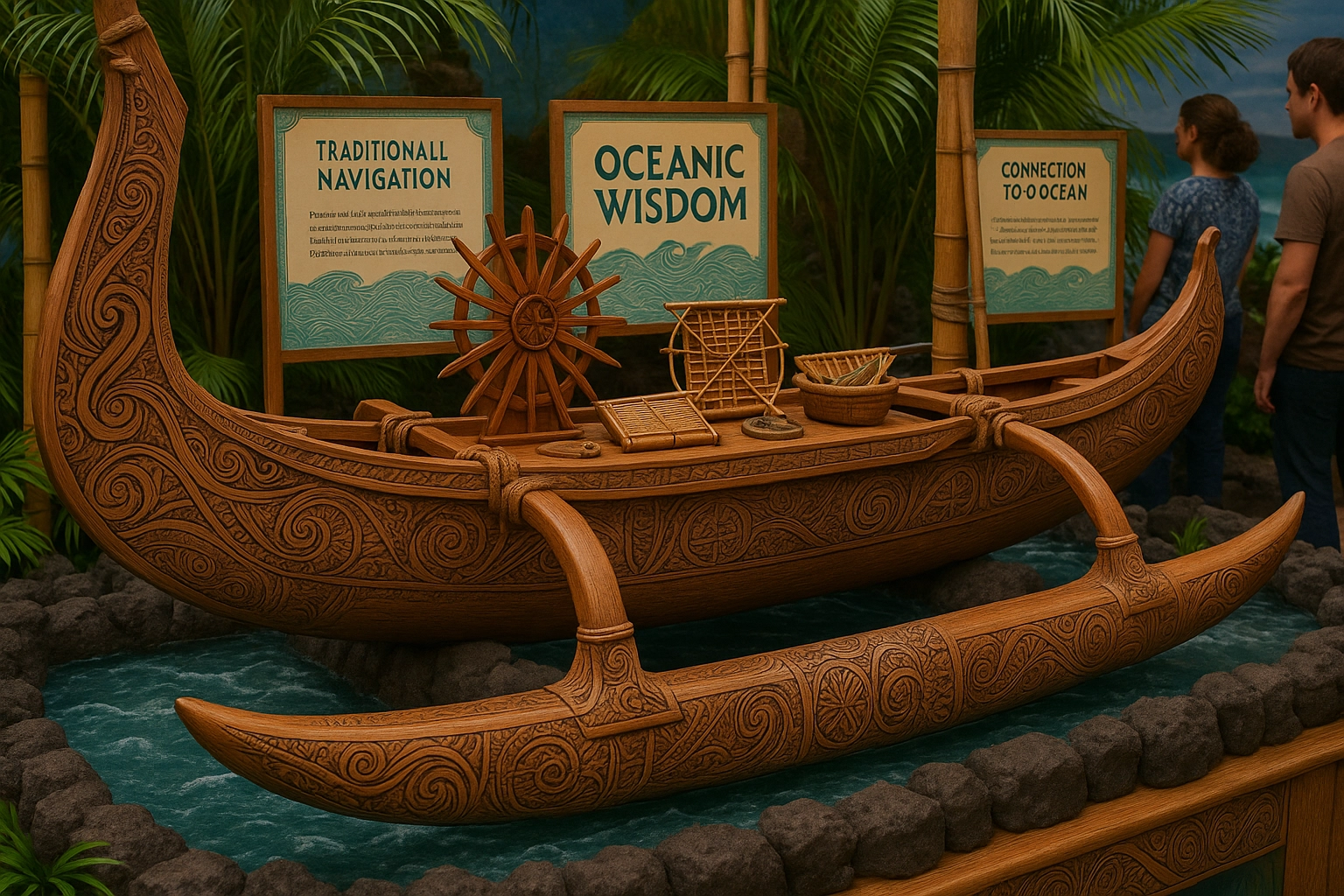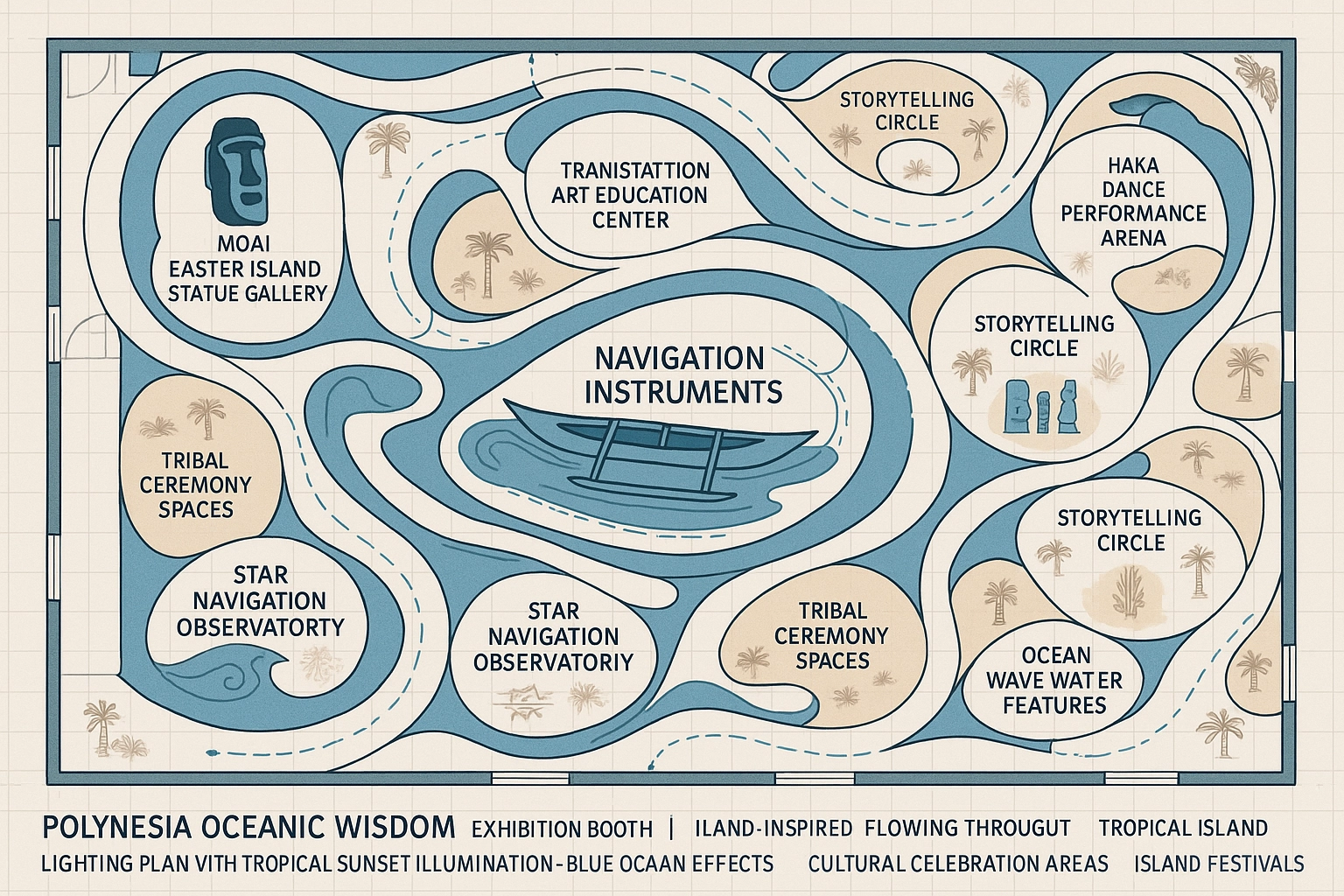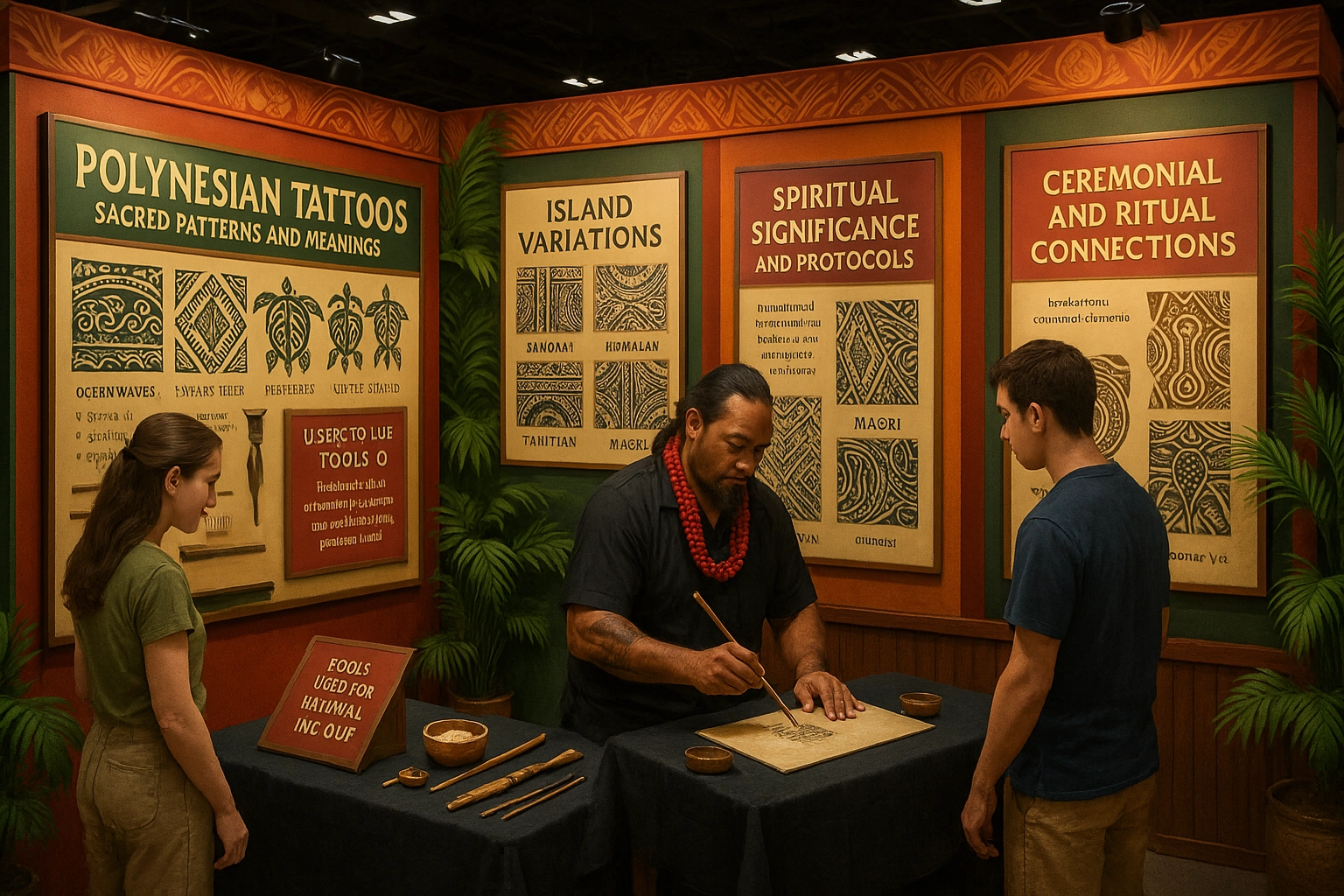Oceanic Wisdom Exhibition
Discover the profound wisdom and maritime traditions of Polynesian navigators through our immersive exhibition experience
Exhibition Layout & Experience

Exhibition Floor Plan
Interactive layout showing navigation centers, canoe displays, and celestial observation areas

Main Exhibition Hall
Featuring traditional outrigger canoes, star compasses, and ceremonial artifacts

Sacred Navigation Center
Interactive space showcasing celestial navigation and wayfinding traditions
Historical Origins
Polynesian spirituality originated with the earliest Austronesian navigators who settled the Pacific from Southeast Asia over 3,000 years ago. Their cultures spread across a vast triangle from Hawaii to New Zealand to Rapa Nui, creating one of the world's greatest maritime traditions.
Emergence & Formation
Oceanic wisdom developed as Polynesian societies mastered long-distance ocean voyaging using celestial navigation, settled volcanic islands and atolls, and formed deeply spiritual connections with the ocean, stars, and ancestral spirits through oral transmission.
Key Figures & Leaders
Maui
Demigod navigator who "fished up" islands, central figure in Polynesian mythology.
Kupe
Legendary Māori explorer who discovered Aotearoa (New Zealand).
Pele
Hawaiian volcano goddess, creator and destroyer of land.
Core Concepts & Beliefs
Mana
Spiritual energy and sacred power present in all life and natural forces.
Tapu (Taboo)
Sacred prohibitions maintaining spiritual and environmental order.
Aumakua
Ancestral spirits and animal guardians guiding the living.
Celestial Navigation
Reading stars, sun, winds, and swells for ocean wayfinding.
Fundamental Principles
Harmony with Ocean
Living in balance with the vast Pacific and its rhythms.
Collective Responsibility
Ohana (family) and communal living above individual needs.
Oral Tradition
Respect for elders and knowledge passed through generations.
Spiritual Stewardship
Sacred care for land, sea, and sky as living entities.
Sacred Symbols
Outrigger Canoe (Va'a/Waka)
The vessel of discovery, life, and ancestral journey.
Tatau (Tattoo)
Spiritual identity, status, and protection encoded in skin.
Star Compass
Knowledge tool for celestial navigation across vast oceans.
Moai Statues
Ancestral guardians and symbols of power on Rapa Nui.
Major Rituals & Ceremonies
Canoe Launching & Blessing
Spiritual preparation for voyages and ocean journeys.
Kava and Ava Ceremonies
Community bonding, chiefly protocol, and sacred social exchange.
Tattoo Initiation
Rite of passage, identity marking, and spiritual protection.
Hula, Haka, Tamure Dances
Ritual performances for ancestors, gods, and community events.
Global Influence & Cultural Impact
Navigation Revival
Polynesian wisdom underpins the modern revival of traditional navigation, inspiring global understanding of sustainable ocean voyaging and celestial wayfinding techniques.
Environmental Activism
Pacific Islander knowledge influences climate resilience and environmental activism worldwide, providing indigenous perspectives on ocean conservation and sustainability.
Cultural Renaissance
Outrigger voyaging has become a symbol of indigenous pride and cultural renewal, spanning over 10 million square miles across the Pacific and inspiring global indigenous movements.
Important Spiritual Texts & Teachings
Oral Tradition
All sacred knowledge passed through chant, song, and story
Star Maps & Stick Charts
Encode navigation, cosmology, and ancestry
Rongo Rongo Tablets
Mysterious written records from Rapa Nui, partially undeciphered
Associated Sacred Places & Monuments
Marae
Sacred courtyards and spiritual centers on every island
Mauna Kea (Hawaii)
Sacred mountain and celestial observatory
Taputapuātea (Raiatea)
Pan-Polynesian temple and voyaging center
Moai and Ahu (Easter Island)
Sacred ancestral monuments and spiritual guardians
Memorable Polynesian Proverb
"He waʻa he moku, he moku he waʻa. The canoe is an island, the island is a canoe."— Hawaiian Navigators' Wisdom